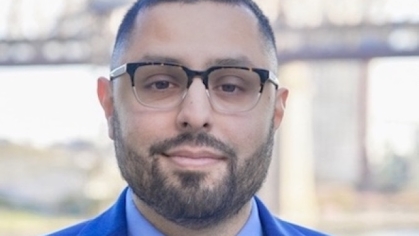Faculty Receive Grant to Research Regulatory Practices of the Social Work Profession
Principal Investigator Joy Jeounghee Kim and co-principal investigators Michael Myungkook Joo and Laura Curran received a research grant ($107,799, 1.5 years) from the Association of Social Work Boards to research the regulatory practices of the social work occupation. Mark Lamar (Associate Professor of Professional Practice and the Executive Director of Field Education) and Jennifer Thompson (Executive Director of the New Jersey Chapter of the National Association of Social Workers) are the two consultants for the research project.
“We were excited to be able to conduct literature reviews on occupational regulations of the social work profession," said Dr. Kim. "We anticipate that our review not only organizes and evaluates the existing knowledge on best regulatory practices but also identifies important research questions that call for empirical evidence to guide future regulations."
Social work licensure exists largely to ensure that professional social workers can serve vulnerable populations safely, ethically, and competently for their health and safety. Licensure also benefits social workers by providing them with the privilege to practice and to use the social work job title in most states, enhances professional identity and status, and protects professional terrain against allied professions. It, furthermore, enables social work practitioners to bill public and private health insurance programs for their services. Regulations for the social work occupation were approved in 1969 by the National Association of Social Workers to secure professional status for social workers through licensure of social work practices at the state level. A decade later, the American Association of State Social Work Boards (currently called the Association of Social Work Boards) was created to coordinate the regulation efforts of state boards. By 1990, all fifty states regulated social work practice in some way. As state policies play crucial roles in occupational regulations, regulations around the social work occupation vary considerably across states. Many concerns have been raised about what seems to be arbitrary inconsistencies in the state regulations.
Over the past decades, the number of regulated occupations has grown from about 1 in 20 to more than 1 in 4. Nowadays, occupational licensing is one of the most important labor market institutions that affect workers’ employment and earnings. There emerged growing criticism that licensure requirements of some occupations are unnecessarily onerous and create entry barriers for some groups of disadvantaged workers. In response, state governments, policy experts, and the U.S. Department of Labor recently began discussing ways to reform occupational regulations to strike a balance between concerns about consumers’ health and safety and labor market inequities across all groups of workers.
The call for proposals by the Association of Social Work Boards came at the right time, as the social work profession is also being asked to respond to the growing concern around its regulatory practices. The grant will help Kim’s research team to identify what constitutes the best regulatory practices of the social work profession and how those practices affect consumers’ safety and health, the quality of social work services, and the labor market outcomes of the social work workforce. The research will also assess gaps in the literature to guide future empirical studies.



